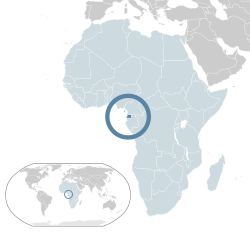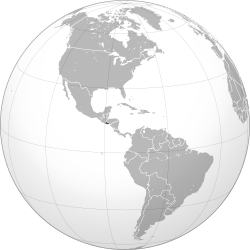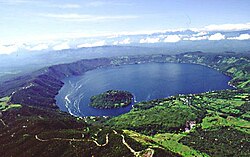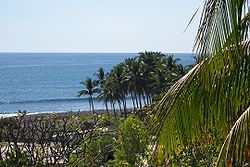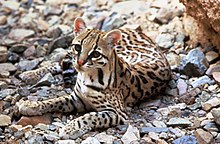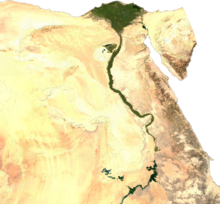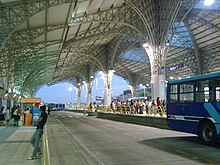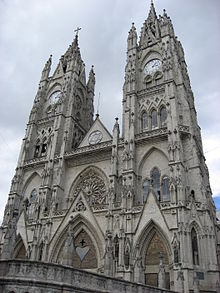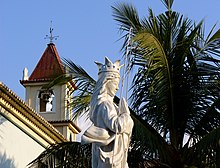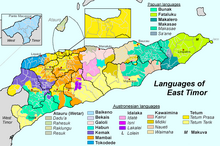Central Guinea, formally the Republic of Equatorial Guinea is a nation spotted in Middle Africa. It embodies two parts: a Continental Region (Río Muni), incorporating numerous modest seaward islands like Corisco, Elobey Grande and Elobey Chico; and a separate district holding Annobón island and Bioko island (once Fernando Po) where the capital Malabo is arranged.
Annobón is the southernmost island of Equatorial Guinea and is arranged only south of the equator. Bioko island is the northernmost purpose of Equatorial Guinea. Between the two islands and to the east is the territory district. Central Guinea is outskirted by Cameroon on the north, Gabon on the south and east, and the Gulf of Guinea on the west, where the island country of São Tomé and Príncipe is spotted between Bioko and Annobón. Once the province of Spanish Guinea, its post-freedom name is suggestive of its area close both the equator and the Gulf of Guinea. Moreover the Spanish urban areas of Ceuta and Melilla on the Mediterranean coast alongside Morocco, it is the main region in territory Africa with Spanish as the official dialect.
With a range of 28,000 square kilometres (11,000 sq mi) Equatorial Guinea is one of the most diminutive nations in mainland Africa. It is likewise the wealthiest for every capita ; notwithstanding, the riches is conveyed quite unevenly, with 70% of the populace living under the United Nations Poverty Threshold of $2/day. With a populace of 650,702, Equatorial Guinea is the third littlest nation in mainland Africa. It is likewise the second most diminutive United Nations (Un) part from mainland Africa.
The disclosure of sizeable petroleum saves as of late is modifying the investment and political status of the nation. Its terrible local item (Gdp) for every capita ranks 28th on the planet; then again, the greater part of the nation's important oil riches truly lies in the hands of just a couple of individuals.
Tropical Guinea has one of the most exceedingly terrible human rights records on the planet, constantly standing around the "most exceedingly bad of the most noticeably awful" in Freedom House's twelve-month review of political and civil rights and Reporters Without Borders ranks President Obiang around its "predators" of press freedom. Out of 44 sub-Saharan nations, Equatorial Guinea ranks 9th most elevated in the Human Development Index (Hdi) and 115th general, which is around the medium Hdi nations.
Geography
Tropical Guinea is found in west midway Africa. The nation comprises of a territory domain, Río Muni, which is flanked by Cameroon to the north and Gabon to the east and south and five modest islands, Bioko, Corisco, Annobón, Small Elobey and Great Elobey. Bioko, the site of the capital, Malabo, lies around the range of 40 kilometers (25 mi) off the shoreline of Cameroon. Annobón island is around the range of 350 kilometers (220 mi) west-south-west of Cape Lopez in Gabon. Corisco and the two Elobey islands are in Corisco Bay, on the outskirt of Río Muni and Gabon.
Central Guinea lies between scopes 4°n and 2°s, and longitudes 5° and 12°e. Notwithstanding its name, no part of the nation's domain lies on the equator -it is altogether in the northern side of the equator, with the exception of the island region of Annobón which is around the range of 155 km south of the equator.
Central Guinea compasses some ecoregions. Río Muni district lies inside the Atlantic Equatorial beachfront backwoods ecoregion with the exception of patches of Central African mangroves on the coast, particularly in the Muni River estuary. The Cross-Sanaga-Bioko seaside backwoods ecoregion blankets the vast majority of Bioko and in addition the nearby partitions of Cameroon and Nigeria on the African territory, and the Mount Cameroon and Bioko montane timberlands ecoregion fronts the good countries of Bioko and adjacent Mount Cameroon.
Central Guinea lies between scopes 4°n and 2°s, and longitudes 5° and 12°e. Notwithstanding its name, no part of the nation's domain lies on the equator -it is altogether in the northern side of the equator, with the exception of the island region of Annobón which is around the range of 155 km south of the equator.
Central Guinea compasses some ecoregions. Río Muni district lies inside the Atlantic Equatorial beachfront backwoods ecoregion with the exception of patches of Central African mangroves on the coast, particularly in the Muni River estuary. The Cross-Sanaga-Bioko seaside backwoods ecoregion blankets the vast majority of Bioko and in addition the nearby partitions of Cameroon and Nigeria on the African territory, and the Mount Cameroon and Bioko montane timberlands ecoregion fronts the good countries of Bioko and adjacent Mount Cameroon.
Climate
Tropical Guinea has a tropical atmosphere with different wet and dry seasons. From June to August, Río Muni is dry and Bioko wet; from December to February, the opposite happens. Amidst there is continuous move. Drizzle or fog happens day by day on Annobón, where a cloudless day has never been enlisted. The temperature at Malabo, Bioko, runs from 16 °c (61 °f) to 33 °c (91 °f), however on the southern Moka Plateau ordinary high temperatures are just 21 °c (70 °f). In Río Muni, the normal temperature is in the ballpark of 27 °c (81 °f). Twelve-month precipitation fluctuates from 1,930 mm (76 in) at Malabo to 10,920 mm (430 in)) at Ureka, Bioko, however Río Muni is sort of drier.
Demographics

The lion's share of the individuals of Equatorial Guinea are of Bantu cause. The biggest tribe, the Fang, is indigenous to the territory, yet considerable movement to Bioko Island has brought about Fang strength over the prior Bantu tenants. The Fang constitute 80% of the populace and include 67 groups. Those in the northern part of Rio Muni talk Fang-Ntumu, while those in the south talk Fang-Okah; the two lingos have distinctions however are commonly comprehensible. Vernaculars of Fang are additionally spoken in parts of neighboring Cameroon (Bulu) and Gabon. These lingos, while still understandable, are more unique. The Bulu Fang of Cameroon were accepted opponents of Fang in Rio Muni. The Bubi, who constitute 15% of the populace, are indigenous to Bioko Island. The customary outline line between Fang and vacation spot tribes was the village of Niefang (point of confinement of the Fang) inland from Bata.
Moreover, there are beachfront tribes, now and then implied as Ndowe or "Playeros" (Beach People in Spanish): Combes, Bujebas, Balengues, and Bengas on the territory and little islands, and Fernandinos, a Krio neighborhood on Bioko Island. Together, these aggregations make 5% out of the populace. A few Europeans (extensively of Spanish or Portuguese plummet) – around them blended with African ethnicity – likewise live in the country. Generally Spaniards left after freedom. There is a developing number of nonnatives from neighboring Cameroon, Nigeria, and Gabon. Central Guinea appropriated Asians and dark Africans from different nations as specialists on cocoa and cafe manors. Other dark Africans originated from Liberia, Angola, and Mozambique. The greater part of the Asian populace is Chinese, with minor amounts of Indians.
Tropical Guinea likewise permitted numerous fortune-looking for European pilgrims of different nationalities, incorporating British, French and Germans. There is additionally a gathering of Israelis, which are utilized at the Centro Médico La Paz in Bata. After autonomy, many Equatorial Guineans headed off to Spain. A different 100,000 Equatorial Guineans headed off to Cameroon, Gabon, and Nigeria in light of the autocracy of Francisco Macías Nguema. Some Equatorial Guinean neighborhoods are additionally to be discovered in Latin America, the United States, Portugal, and France. Oil extraction has donated to a multiplying of the populace in Malabo.
Religion
The important religion in Equatorial Guinea is Christianity which is the trust of 93% of the populace. These are predominately Roman Catholic (87%) while a minority are Protestants (5%). A different 5% of the populace take after indigenous convictions and the last 2% includes Muslims, Bahá'í Faith, and other beliefs.
Languages
The important religion in Equatorial Guinea is Christianity which is the trust of 93% of the populace. These are predominately Roman Catholic (87%) while a minority are Protestants (5%). A different 5% of the populace take after indigenous convictions and the last 2% includes Muslims, Bahá'í Faith, and other beliefs.
Languages
The Constitutional Law that changes article four of the Fundamental Law of the State builds that the official dialects of the Republic of Equatorial Guinea are Spanish and French. In July 2007, President Teodoro Obiang Nguema proclaimed his administration's choice for Portuguese to get Equatorial Guinea's third official dialect, with a specific end goal to meet one of the necessities to seek full participation in the Community of Portuguese Language Countries (Cplp), the other one being political changes taking into account adequate vote based system and the appreciation for human rights. This overhauling from its current Associate Observer condition might bring about Equatorial Guinea having the ability to enter a few expert and scholastic trade arrangements and the aid of cross-fringe course of subjects. Its provision is presently being evaluated by other Cplp parts.
As per a couple of sources Portuguese is an official dialect now, yet numerous different sources, incorporating official Equatorial Guinean sources, don't treat Portuguese as an official dialect, which shows that the choice above was not achieved. Throughout the Viii Conference of the Community of Portuguese Language Countries in Luanda (23 July 2010), Equatorial Guinea formally asked for the enrollment in this conglomeration. The last assertion of the gathering expressed that one of the conditions is the reception of Portuguese as an official dialect of Equatorial Guinea, which obviously shows that when of the meeting the Portuguese dialect was not an official dialect of Equatorial Guinea.however in the wake of finishing the final Cplp summit, the President of Equatorial Guinea, in revelations to the global media, expressed that his nation upholds the trust of shaping part of this neighborhood, with which Equatorial Guinea, for its history and its society, is exceptionally close. He told that on the 20 July 2010, the Government of Equatorial Guinea had endorsed the declaration by which the Portuguese dialect turned into the third official dialect of the nation, expecting just its regard in the House of People's Representatives.so far no official affirmation of affirming the announcement by the Parliament – official dialects are recorded in the constitution, so Parliament might as well receive the established law that corrects article four of the constitulion. Native dialects are distinguished as fundamental parts of the national society" (Constitutional Law No. 1/1998 of January 21). The extraordinary larger part of Equatorial Guineans talk Spanish, particularly those living in the capital, Malabo. Spanish has been an official dialect since 1844.
Dialects spoken in the nation are Spanish, Equatoguinean Spanish, local dialects (counting Fang, Bube, Benga, Pichinglis, Ndowe, Balengue, Bujeba, Bissio, Gumu, Igbo and an almost wiped out Baseke), French, others (primarily English, or German, and Annobonese dialect (Fá d'ambô) a Portuguese creole, and Fernando Poo Creole English).
Education
Under the administration of Francisco Macias, training had been essentially ignored with few kids accepting any sort of instruction. Under President Obiang, the lack of education rate dropped from 73 percent to 13 percent and the amount of elementary school scholars has climbed from 65,000 in 1986 to more than 100,000 in 1994. Instruction is free and mandatory for kids between the ages of 6 and 14.
The Equatorial Guinea government has likewise joined forces with Hess Corporation and The Academy for Educational Development (Aed) to build a $20 million instruction system through which elementary teachers take an interest in a preparation system to instruct up to date tyke advancement strategies.
As of late, with change in economic/political atmosphere and government social driving forces, a few social scattering and proficiency conglomerations are currently spotted in the nation, established predominantly with the monetary uphold of the Spanish government. The nation has one college, the Universidad Nacional de Guinea Ecuatorial (Unge) with a facilities in Malabo and a Faculty of Medicine found in Bata on the territory. In 2009 the school handled the first 110 national specialists. The Bata Medical School is backed essentially by the legislature of Cuba and staffed by Cuban medicinal instructors and doctors, nonetheless, it is expected that Equatorial Guinea will have enough national specialists in the nation to be independent inside the following five years.
As per a couple of sources Portuguese is an official dialect now, yet numerous different sources, incorporating official Equatorial Guinean sources, don't treat Portuguese as an official dialect, which shows that the choice above was not achieved. Throughout the Viii Conference of the Community of Portuguese Language Countries in Luanda (23 July 2010), Equatorial Guinea formally asked for the enrollment in this conglomeration. The last assertion of the gathering expressed that one of the conditions is the reception of Portuguese as an official dialect of Equatorial Guinea, which obviously shows that when of the meeting the Portuguese dialect was not an official dialect of Equatorial Guinea.however in the wake of finishing the final Cplp summit, the President of Equatorial Guinea, in revelations to the global media, expressed that his nation upholds the trust of shaping part of this neighborhood, with which Equatorial Guinea, for its history and its society, is exceptionally close. He told that on the 20 July 2010, the Government of Equatorial Guinea had endorsed the declaration by which the Portuguese dialect turned into the third official dialect of the nation, expecting just its regard in the House of People's Representatives.so far no official affirmation of affirming the announcement by the Parliament – official dialects are recorded in the constitution, so Parliament might as well receive the established law that corrects article four of the constitulion. Native dialects are distinguished as fundamental parts of the national society" (Constitutional Law No. 1/1998 of January 21). The extraordinary larger part of Equatorial Guineans talk Spanish, particularly those living in the capital, Malabo. Spanish has been an official dialect since 1844.
Dialects spoken in the nation are Spanish, Equatoguinean Spanish, local dialects (counting Fang, Bube, Benga, Pichinglis, Ndowe, Balengue, Bujeba, Bissio, Gumu, Igbo and an almost wiped out Baseke), French, others (primarily English, or German, and Annobonese dialect (Fá d'ambô) a Portuguese creole, and Fernando Poo Creole English).
Education
Under the administration of Francisco Macias, training had been essentially ignored with few kids accepting any sort of instruction. Under President Obiang, the lack of education rate dropped from 73 percent to 13 percent and the amount of elementary school scholars has climbed from 65,000 in 1986 to more than 100,000 in 1994. Instruction is free and mandatory for kids between the ages of 6 and 14.
The Equatorial Guinea government has likewise joined forces with Hess Corporation and The Academy for Educational Development (Aed) to build a $20 million instruction system through which elementary teachers take an interest in a preparation system to instruct up to date tyke advancement strategies.
As of late, with change in economic/political atmosphere and government social driving forces, a few social scattering and proficiency conglomerations are currently spotted in the nation, established predominantly with the monetary uphold of the Spanish government. The nation has one college, the Universidad Nacional de Guinea Ecuatorial (Unge) with a facilities in Malabo and a Faculty of Medicine found in Bata on the territory. In 2009 the school handled the first 110 national specialists. The Bata Medical School is backed essentially by the legislature of Cuba and staffed by Cuban medicinal instructors and doctors, nonetheless, it is expected that Equatorial Guinea will have enough national specialists in the nation to be independent inside the following five years.
Miss Equatorial Guinea 2012:
